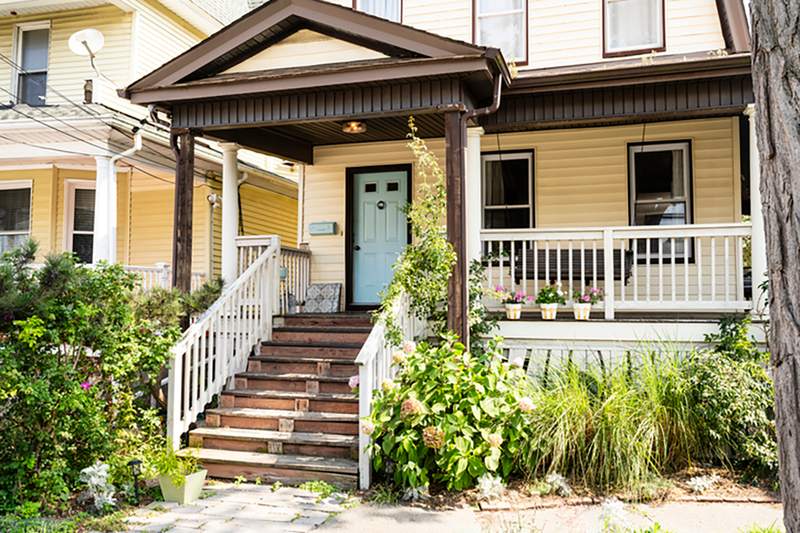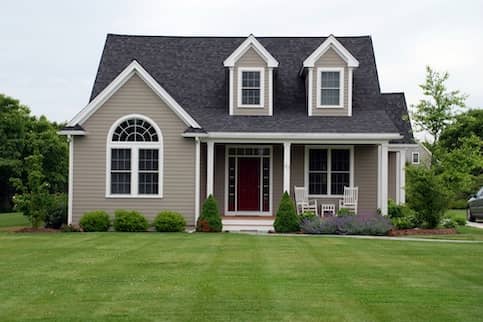Have you ever wondered, “How much should I spend on rent?” Finding a new place to live can be stressful — you want to find somewhere nice and comfortable, but you also don’t want to spend most of your paycheck on housing costs.
According to the U.S. Census Bureau, more than 19 million households are considered cost-burdened, which means they spend more than 30% of their paycheck on rent and utilities. And the amount you pay for rent can vary considerably depending on the housing costs in your city.
If you’ve ever wondered how much to spend on rent, a few different budgeting rules could help you determine the right amount.
How Much To Spend On Rent Using The 30% Rule
If you’re new to budgeting, you may wonder how much of your income should you spend on rent. These costs can vary depending on your lifestyle and where you live, but most experts recommend starting with the 30% rule.
The 30% rule says that no more than 30% of your monthly gross income should go toward your rent. According to this rule, if you make $4,000 a month, you should spend no more than $1,200 per month on rent.
Sticking to the 30% rule helps ensure you have enough money left over to save or put toward other expenses. For example, earning $4,000 a month and spending $1,200 on rent leaves you with $2,800 a month left over for your other monthly expenses and savings after you pay your rent.
The 30% rule came from the U.S. Department of Housing and Urban Development (HUD). HUD determined that families who pay more than 30% toward their rent have a hard time meeting other financial obligations.
Disadvantage of the 30% Rule
The 30% rule is a good place to start, but it’s not an exact measurement of how much rent you can afford. Changes in inflation and household income have made this rule harder to follow for lower-income earners in high-cost locations.
And the 30% rule doesn’t take into account your debt, additional expenses or overall cost of living. Paying off student loans or credit card debt can severely limit the amount of cash you have to spend on living costs, which means that 30% would put you over your budget.
The 30% rule may not be the best choice for high earners trying to determine how much to spend on housing costs. For example, someone making $200,000 a year would pay $5,000 a month on their rent to meet the 30% rule. While there are certainly apartments and homes that cost that much, there may be better ways to spend that money.
See What You Qualify For
Buy A Home
Discover mortgage options that fit your unique financial needs.

Refinance
Refinance your mortgage to have more money for what matters.
Tap Into Equity
Use your home’s equity and unlock cash to achieve your goals.
Using The 50/30/20 Budgeting Rule
If the 30% rule doesn’t work for you, another budgeting concept you may find helpful is the 50/30/20 rule. This rule recommends putting 50% of your income toward necessities like housing and food, 30% toward wants, and 20% into savings and paying down debt.
If you earn $4,000 a month, that means you’ll pay $2,000 toward housing and food costs. $1,200 will go toward discretionary spending like dining out, entertainment, or hobbies. And $800 will go toward savings or paying down debt.
This budgeting rule was developed by Senator Elizabeth Warren from Massachusetts. The benefit of the 50/30/20 rules is that it provides a more comprehensive look at the relationship between your rent and finances.
But you may still find that it doesn’t work with your long-term financial goals. For example, if you’re focused on paying down debt, you may want to devote more than 20% of your income toward that borrowed money.
How To Calculate How Much You Can Afford To Spend On Rent
You know your financial situation best. If an existing budgeting tool doesn’t fit your needs, you’ll need to make your own budget to determine how much rent you can afford. A budget is an estimate of your income and expenses for that month.
To create a monthly budget, you’ll start by figuring out your total monthly income after taxes. From there, make a list of any recurring expenses you have. Recurring expenses are costs that occur on a regular basis and may include utilities, food or subscription services. They should also include any required minimum debt payments.
You should also estimate how much you spend on variable costs on a month-to-month basis. Variable expenses change on a monthly basis — eating out and doctor’s visits are examples of variable costs.
Once you understand how much you’re earning and spending, you can take some time to determine an appropriate renting budget. If you’re left with very little money to spend on rent, you may need to cut some of your budget items.
If spending less isn’t possible, you may have to take more drastic measures. For example, you might consider negotiating a raise, moving to a state with a lower cost of living or downsizing your home or apartment.
When you’re creating a budget, the most important thing to keep in mind is your long-term financial goals. For example, if you’re saving up for a home or an emergency fund, you’ll want to set aside money each month to help you reach this goal.
Other Renter Expenses To Consider
If you’re wondering how much you should pay for rent, you should consider any services that are included in your monthly rent payments. For instance, if your rental agreement covers utilities, internet or laundry facilities, this can offset higher rent costs.
If the cost of those amenities aren’t included, you’ll need to consider how they can impact the overall cost of renting. In addition, there are less obvious expenses that you could avoid to help you save money. For example, living in an apartment that’s close to your job will save you money on gas or commuting.
Tips For Lowering Your Rent Budget
Finding an affordable rental is not always easy, and if you live in areas like New York, San Francisco or Los Angeles, it can feel downright impossible. If you find yourself in this situation, you may need to find other strategies for lowering the amount you’re spending on rent.
Here are some tips for lowering your rent budget:
- Find roommates: If you have a spare bedroom in your home or apartment, you can find a roommate to split the costs with. Just make sure you discuss these arrangements with your landlord first.
- Organize a car pool: If you’re commuting to the office every day, you may be able to find others close by to car pool with, splitting the cost of gas.
- Ask for a promotion or find a new job: At some point, it may become necessary for you to start earning more money. You can explore opportunities for a promotion at your current job or start looking for work elsewhere.
- Lower your renters insurance: You should also look for opportunities to cut down on your renters insurance. Some providers offer bundled coverage, which can help with affordability on all of your insurance-related expenses.
- Look for move-in deals: Some apartment complexes will offer move-in deals for new renters. These are usually one-time offers and may include things like waiving your application fee, reducing your security deposit or giving you 1 month’s rent for free.
- Renegotiate your rent: If your lease ends soon, it may be worth renegotiating your rent, especially if you have a good relationship with your landlord or if other apartments in your neighborhood are lower in price.
- Shop during the winter: Landlords often have a harder time finding renters during the winter months. And if these vacancies go on for too long, they’ll start to lose money. Since there’s less demand during the winter, you may be able to find a better deal on rent.
- Pay upfront: If you have the money to pay your entire lease upfront, your landlord may give you a discount on your rent. However, you should only do this if you have enough money in savings — don’t rack up credit card debt in an attempt to save money on rent.
The Bottom Line
A budgeting rule of thumb is a great place to start when it comes to figuring out just how much you should pay for rent. But at some point, you may outgrow these strategies and you’ll need to come up with a personalized budget.
Creating a budget is the best way to ensure you understand how much you’re earning and spending. This knowledge will help you pay your bills on time and reach your financial goals.
If your current rent is more than you can afford, there are still creative ways you can save money. Finding a roommate, getting a new job, or renegotiating your rent are all ways you can make your housing costs more affordable.
Home Affordability Calculator
Calculate the home price you can afford using your income and the amount of debt you have.

Jamie Johnson
Jamie Johnson is a Kansas City-based freelance writer who writes about a variety of personal finance topics, including loans, building credit, and paying down debt. She currently writes for clients like the U.S. Chamber of Commerce, Business Insider and Bankrate.












